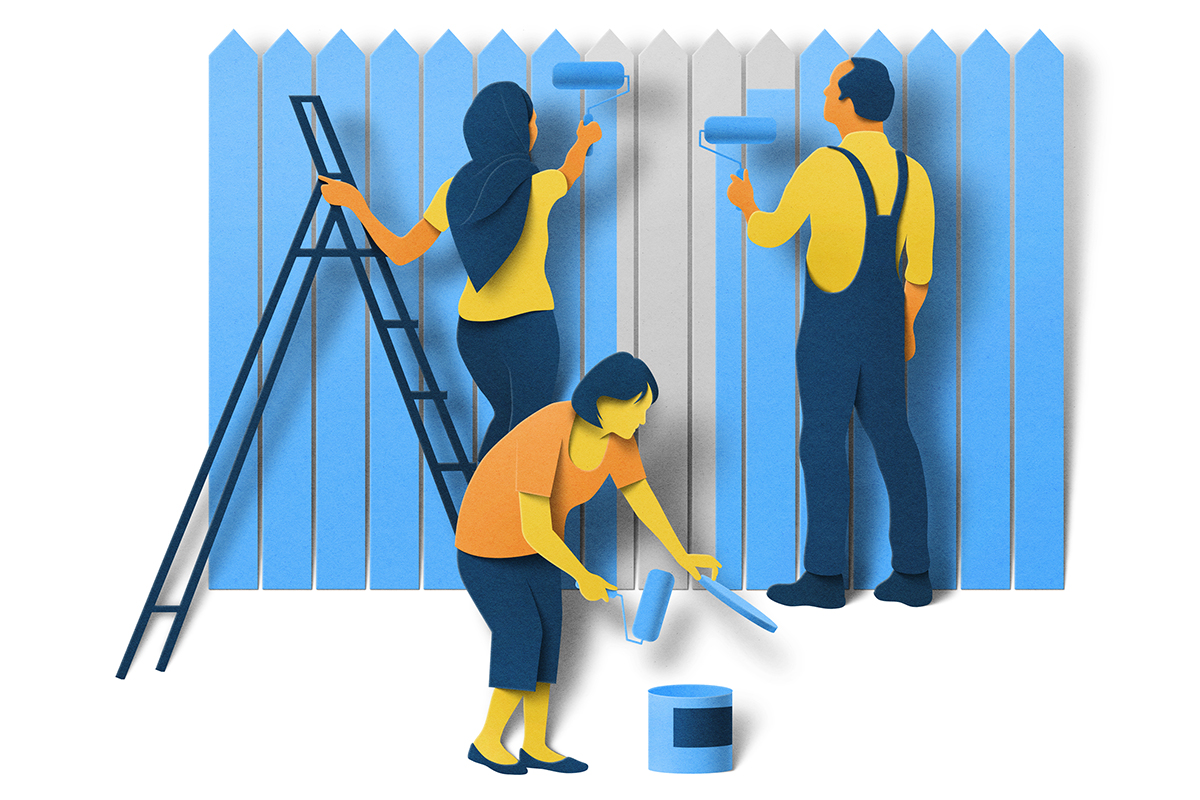Sustainable home upgrades
3 minute read


Sustainable home upgrades
3 minute read
Why sustainable upgrades matter
Investing in green home upgrades, brings three main wins:
- Lower energy bills
- Extra warmth
- A better Energy Performance Certificate (EPC) rating (based on how energy efficient the property is).
Some upgrades take less time than others to install in properties and their money saving benefits can pay back the price of their installation quicker. Bigger projects cost more, but grants or incentives may help. Either way, green changes save money while reducing your home's carbon footprint and impact on the environment.
It also makes financial sense. By the late 2020s, rental homes will need an EPC rating of C or higher1. A properties EPC rating shows how energy efficient a property is. The higher the rating, the lower your energy bills are likely to be. A-rating being the best, and G-rating being the least efficient. Even if you’re not planning to rent, more people are environmentally conscious, and a poor rating can make a property less appealing.
Where should you start? Where the heat escapes!
Insulating your loft is often the most effective place to start. Heat can quickly be lost through the roof, which pushes up bills. Which? estimates that households with little or no insulation can save up to £340 a year, depending on the property and energy prices.2
That means this upgrade can often pay for itself within just a few years. It’s usually a straightforward job with immediate benefits. Think fewer draughts and lower bills from day one.
Windows can also impact your home’s ability to efficiently regulate heat. Heat gain and loss through windows are responsible for 25-30% of residential heating and cooling energy use3, making energy efficient windows an important consideration for both new and existing homes.
Replacing windows can be an expensive option, especially to replace all the windows in a property. However adequate windows can play a big part in improving a properties EPC rating.

Turn sunshine into savings with solar panels
Turn sunshine into savings with solar panels
The cost of solar panels has fallen since they were first widely introduced as possible options for our homes. A typical 4kW system could cost around £5,500 to £7,700.4
In sunnier parts of the UK, going solar can save you up to £800 a year. You’ll often see payback through cost savings quoted at 8 to 15 years, but rising energy prices can shorten this.
Panels can also boost your home’s value, with more environmentally aware buyers preferring energy-efficient places to live alongside the potential for energy cost savings.
To get started, make sure to check planning rules in your area to ensure solar panels are allowed and suitable for your property.
The cost of solar panels has fallen in recent years. A typical 3.5-4kW system costs £5,500 to £7,700.4
In sunnier parts of the UK, going solar can save you up to £800 a year. You’ll often see this quoted at eight to 15 years, but rising energy prices can shorten this.
Panels can also boost your home’s value. Why? Because buyers prefer energy-efficient places to live.
To get started, make sure solar will work with your roof and check planning rules in your area.
Heat your home the greener way – with air source heat pumps
Air source heat pumps extract warmth from outside air to heat your home and hot water. And they still work during winter!
The UK government’s Boiler Upgrade Scheme offers grants of up to £7,500 to help homeowners replace old gas boilers (and other fossil fuel heating systems) with alternative heating systems like air source or ground source heat pumps5.
The scheme helps support the transition to more efficient home heating. The scheme is available in England and Wales and applies to properties that meet specific requirements. For full details and to check your eligibility, visit Gov.uk for more information to see if a heat pump could be a suitable option for you.
How to plan your green home upgrade
- Start small. Begin with insulation and draught-proofing. These changes will make a big difference and lay the groundwork for larger projects.
- Check support schemes. These can really help reduce costs if you qualify. Some councils also offer grants or low-cost loans.
- Think about funding. A savings pot is a good way to prepare for bigger upgrades. For larger projects, you might consider Green Additional Borrowing, adding costs to your mortgage or remortgaging to release funds.
Spreading the cost in this way can make things more affordable. And a boost to your home’s value could help offset the extra borrowing over time.
It's important when choosing any form of additional funding that you consider the implications. Borrowing could increase interest rates or extend repayment periods, you may wish to seek advice before making any additional borrowing decisions.
- Hire trusted installers. Always get a range of quotes and check accreditation. This protects your investments and helps provide assurance you qualify for government support.
Future-proofing your home’s value
Eco upgrades are more than a lifestyle choice. They’re an investment.
Homes with poor EPC ratings risk falling behind in the property market. But efficient homes are likely to hold or grow in value. The best strategy is to combine quick wins with long-term plans.
Making it happen
Sources:
[1]Source - Improving the energy performance of privately rented homes: 2025 update - GOV.UK
[2]Source - Loft Insulation Costs And Savings: How Much Does Loft Insulation Cost? - Which?
[3]Source - Do you lose a lot of heat through windows? | ShuttersUp
[4]Source - How much do Solar Panel Systems Cost? UK Prices 2025
[5]Source - Boiler Upgrade Scheme - GOV-UK Find a grant
Published September 2025
Related articles:

Top tips for an autumn-ready outdoor space
September is the perfect time to turn any outdoor space into a cosy retreat where you can relax and unwind.
Related articles:

Top tips for an autumn-ready outdoor space
September is the perfect time to turn any outdoor space into a cosy retreat where you can relax and unwind.

Related articles:

What's next for interest rates?
Discover more on how to deal with changes to interest rates.


